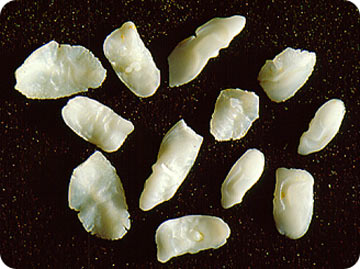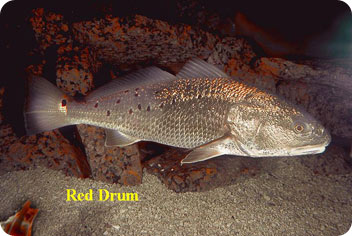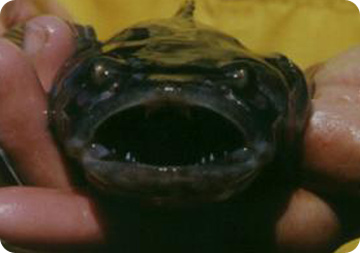Radio Program
Our regular Science and the SeaTM radio program presents marine science topics in an engaging two-minute story format. Our script writers gather ideas for the radio program from the University of Texas Marine Science Institute's researchers and from our very popular college class, Introduction to Oceanography, which we teach to hundreds of non-science majors at The University of Texas at Austin every year. Our radio programs are distributed at to commercial and public radio stations across the country.
The oceans are the cradle of life. The first known life on Earth appeared in the oceans at least three and a half billion years ago -- a type of one-celled organism known as cyanobacteria. They gave rise to more complicated lifeforms later on. And they also helped make modern-day life possible by pumping oxygen into the air and water.
Most fish keep a diary. It records their motions through the seas. It can tell us whether they swam through polluted waters, and sometimes even what the water temperature was.

Today, just about everybody understands the dangers of DDT. The pesticide was used around the country in the 1950s and ’60s to kill mosquitoes. But it also killed birds and other wildlife, and caused health problems in humans. So the environmental harm outweighed the benefits.

You can’t tell by looking, but New York City is at the head of one of the world’s most impressive canyons -- the Hudson Canyon. From the mouth of the Hudson River, it extends about 300 miles into the Atlantic Ocean, and cuts almost four miles deep into the continental shelf. It’s a conduit for moving sediments, nutrients, and pollution from the land to the deep ocean.
If you’re a mussel -- of the edible aquatic variety -- then you’d better be on your best behavior: Big Brother is watching you. In fact, a federal research group has been keeping an eye on mussels and oysters for more than two decades -- from Puerto Rico to the Great Lakes to Alaska and Hawaii.
Some of the tiniest creatures in the ocean play a big role in controlling our planet’s temperature. But as the temperature goes up, the overall volume of these creatures appears to go down, which reduces their ability to keep Earth from overheating.
The tasty fish known as red drum can be one of the loudest fish around -- sometimes loud enough to hear from above the water. In fact, that’s where it gets its name -- it makes a sound like a drum.

For houseboaters in Sausalito, California, it was a spooky mystery. In the 1970s, many began to hear an odd humming noise at night. It became so loud that it kept many people awake. Some blamed a power plant, others said it was an experiment by the navy, and still others blamed it on extraterrestrials.

The odds of survival for a young fish aren’t very good. It needs to grow and develop in a hurry to evade predators and adapt to daily changes in the environment. But for fish whose mothers were exposed to industrial pollution, the odds are longer still. They may develop more slowly, making them easier targets -- endangering not only individual fish, but entire populations.
The 1770s were a stormy time in southern Georgia, with perhaps a half-dozen tropical storms plowing through the region. The first couple of decades of the 1800s were stormy, too, along with a couple more in the mid 1800s.
Written records of the storms range from spotty to non-existent. But scientists have found strong evidence of the storms in another kind of record: tree rings.

